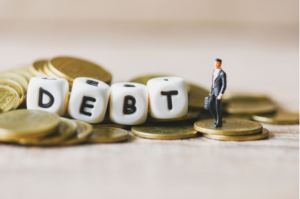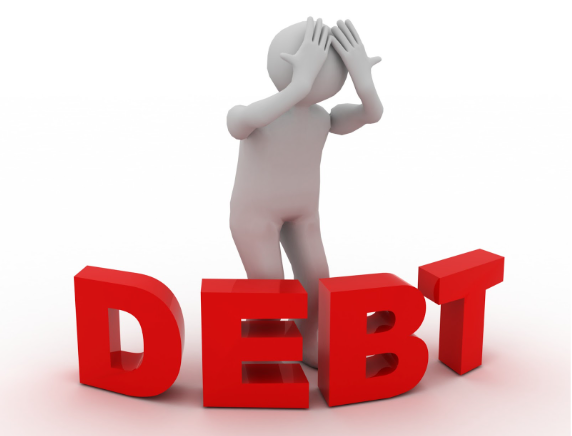
The Impact of Emotional Spending on Your Finances
Emotional spending has become a common coping mechanism for many Canadians, even while in debt. It’s no secret that our emotions significantly influence our financial decisions, sometimes leading us to spend impulsively on items we don’t truly need. While the temporary relief emotional spending provides might seem comforting, it can harm our long-term financial well-being. In this blog post, we’ll explore the concept of emotional spending, understand its root causes, and provide empathetic strategies to help Canadians in debt break free from this cycle and regain control over their finances.
What is Emotional Spending?
Emotional spending refers to the act of making purchases as a response to feelings like stress, anxiety, loneliness, or even happiness. It often occurs as a way to seek comfort, escape from negative emotions, or experience a temporary high. While everyone might engage in emotional spending from time to time, it becomes problematic when it becomes a habitual response, leading to increased debt and financial stress.
What are the Root Causes of Emotional Spending?
Stress and Anxiety:
Financial stress and anxiety can trigger emotional spending as individuals seek relief and distraction from their worries through shopping. The brief euphoria experienced during the purchase provides a sense of control in times of uncertainty.
Social Pressure and Comparison:
The constant comparison to others on social media can create a fear of missing out (FOMO) and drive individuals to spend money on things they don’t need to keep up appearances or fit into a particular lifestyle.
Advertising and Marketing:
Clever marketing tactics often target consumers’ emotions, encouraging them to buy products that promise happiness, success, or acceptance. Emotional triggers in advertisements can lead to impulse purchases without considering the long-term financial consequences.
Loneliness and Boredom:
Feeling lonely or bored can prompt emotional spending to fill a void or pass the time. Retail therapy might provide a temporary distraction from feelings of isolation.
The Impact of Emotional Spending on Finances

Increased Debt:
Emotional spending can lead to mounting credit card balances and personal loans, increasing existing debts and making it more challenging to achieve financial stability.
Lack of Savings:
Frequent emotional spending leaves little room for savings, hindering the ability to create an emergency fund or invest for the future.
Financial Stress:
As debt accumulates and financial goals become unattainable, the stress and anxiety associated with debt can intensify, creating a vicious cycle of emotional spending.
Delayed Debt Repayment:
Emotional spending diverts funds that could be used to pay off debts faster, extending the time it takes to become debt-free.
Strategies to Overcome Emotional Spending
Identify Emotional Triggers:
Take time to recognize the emotions that trigger your spending habits. By understanding these triggers, you can develop healthier coping mechanisms that don’t involve excessive spending.
Create a Budget:
Establishing a realistic budget will help you prioritize essential expenses while curbing impulsive purchases. Allocating a portion of your income towards savings and debt repayment will set you on a path toward financial security.
Implement a Waiting Period:
Before making non-essential purchases, implement a waiting period. Give yourself 24 hours or more to consider if the item is a necessity or a fleeting desire.
Unsubscribe from Marketing Emails:
Reducing exposure to advertising can minimize impulsive buying tendencies. Unsubscribe from marketing emails and unfollow social media accounts that promote unnecessary spending.
Build a Support System:
Engage with family and friends who understand your financial goals and can provide emotional support without pressuring you to overspend.
Find Affordable Alternatives:
Seek affordable or free ways to cope with emotions and boredom, such as going for a walk, practicing mindfulness, or pursuing a hobby.
Practice Self-Compassion:

Practicing self-compassion is fundamental to navigating the journey towards healthier spending habits. It’s essential to treat yourself with kindness and understanding, especially when working to change unhealthy behaviors. Recognize that transforming spending habits is a process that requires time and effort. Embrace the fact that there may be occasional slip-ups or setbacks along the way, and that’s perfectly normal. Instead of being overly hard on yourself for any missteps, use them as opportunities to learn and grow.
Conclusion
Emotional spending can have a profound impact on your financial well-being, but with self-awareness, it’s possible to break free from this pattern. By understanding the root causes of emotional spending and adopting healthy financial habits, individuals can regain control over their finances and work towards a more secure and prosperous future. Remember, the journey to financial well-being is a gradual process, and every step towards overcoming emotional spending is a step towards a more fulfilling and debt-free life.
Consulting debt experts at EmpireOne Credit can be a transformative step towards a debt-free future. With our assistance, you could experience a remarkable reduction of up to 80% in your debt, while putting an end to interest. Take charge of your financial journey and start the path to financial freedom by calling us at (416) 900-2324 to schedule a free consultation. Being debt-free feels good!





